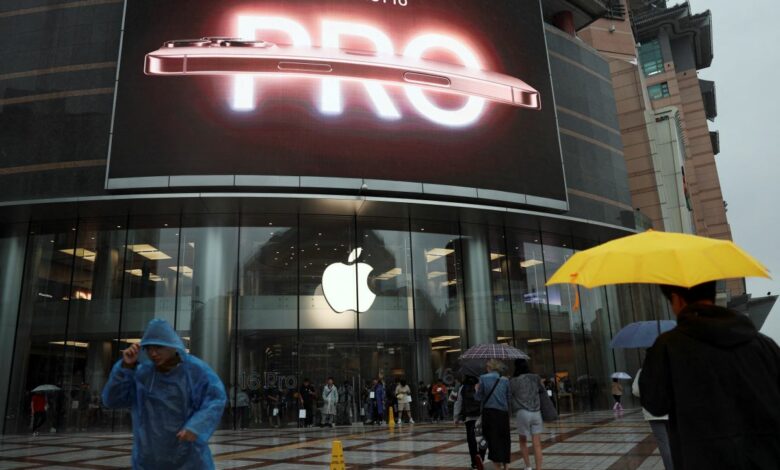Apple will offer additional investments in Indonesia to lift the iPhone ban

Apple has proposed investing nearly $10 million (about Rs. 84 crore) to make additional goods in Indonesia, according to people familiar with the matter, as the company looks to lift the ban on sales of its latest iPhone in the country to have it lifted.
The plan involves Apple investing in a factory in Bandung, southeast of Jakarta, in partnership with its list of suppliers, the people said, asking not to be identified because they were not authorized to speak publicly. The factory would make products such as accessories and components for Apple gadgets, the people said.
Apple has submitted its proposal to the country’s Ministry of Industry, which last month blocked a permit to sell the iPhone 16 because the US tech giant’s local unit would not meet the 40 percent domestic content requirement for smartphones and tablets.
The ministry is deliberating on the proposal, which is not yet finalized and could be subject to change, and is expected to reach a decision soon, the people said.
Apple did not respond to a request for comment. The Ministry of Industry also did not respond to a request for comment.
Indonesia’s iPhone 16 ban is the latest example of the pressure new President Prabowo Subianto’s government is putting on international companies to boost local production while trying to protect domestic industries. The Southeast Asian country has also banned sales of Alphabet’s Google Pixel phones due to a similar lack of investment.
The measures are a continuation of similar tactics used under the government of former President Joko Widodo. Last year, Indonesia blocked China’s ByteDance Ltd. in a bid to protect its retail sector from cheap Chinese-made goods, prompting the hugely popular video service to eventually invest $1.5 billion (approximately Rs. 12,653 crore) in a joint venture with Tokopedia, the e-commerce arm of Indonesia GoTo Group.
Apple does not have standalone factories in Indonesia and, like most multinationals, works with locally based suppliers to make components or final products. An investment of nearly $10 million (about Rs. 84 crore) would be a relatively small price for Apple to pay for freer access to Indonesia’s roughly 278 million consumers — more than half of whom are under 44 years old and tech-savvy.
While Indonesia may view Apple’s additional investment as a victory if it turns out, the strong approach risks deterring other companies from expanding their presence or establishing a footprint in the first place, especially those looking to break away from China. It could also jeopardize Prabowo’s goal of attracting foreign investment to grow the economy and finance policy spending.
According to the Indonesian government, Apple has invested only IDR 1.5 trillion ($95 million and Rs. 8,013 crore) in the country through developer academies, falling short of its IDR 1.7 trillion commitment. Officials have also asked e-commerce players Tokopedia and TikTok to remove iPhone 16 sellers from their platforms or risk legal action.
Indonesia has previously demonstrated haphazard trade policies.
Earlier this year, the government imposed import restrictions on thousands of products – from MacBooks to tires and chemicals – to force foreign companies to scale up production. But the move caused an uproar among the business community, including players with a long-standing manufacturing presence in the country such as LG Electronics, which complained that it could not import certain components to make washing machines and televisions.
Despite Indonesia’s repeated calls for international companies to boost production, the local industry is languishing. Production as a percentage of gross domestic product fell from 21.1 percent in 2014 to 18.7 percent last year.
© 2024 BloombergLP




